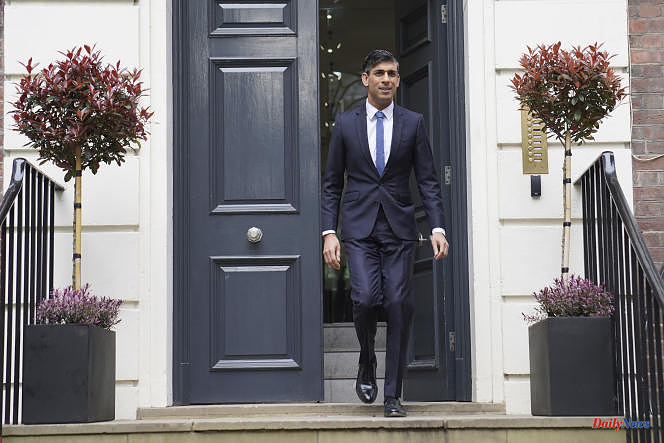British Prime Minister Rishi Sunak's Conservative Party was heading for a major defeat in the local elections in England on Friday, May 5, according to the first results announced. The counting is still in progress and should last until Friday evening, but, during the night, the ruling party has already suffered major setbacks in some of its strongholds.
After counting ballots in 61 of the 230 local councils at stake this year, the Tories lost 190 elected officials, according to Guardian figures. "It is always disappointing for these hard-working Conservative advisers" not to be re-elected, Prime Minister Rishi Sunak reacted on Sky News, repeating his promises at the national level concerning the economy, health or the fight against immigration illegal. He said on Wednesday he expected a "difficult" election.
The Labor Party won, at this stage, 138 seats. National Labor Party campaign co-ordinator Shabana Mahmood said "these results are a disaster for Rishi Sunak, whom voters are punishing for the failures of the Tories [the Conservatives]." The party hopes to succeed in bringing its leader, Keir Starmer, into Downing Street after the next general election, due by the end of next year. The Liberal Democrats recorded a net gain of 59 seats. “We are exceeding all expectations,” rejoiced their leader, Ed Davey, welcoming the blow to the conservative “blue wall”. The Greens won 13.
Plymouth and Stoke-on-Trent for Labor
The opposition Labor party notably won the local councils of Plymouth (South) and Stoke-on-Trent (North). This city was considered in the British press as the "capital" of Brexit - 69% of voters there voted for Brexit in 2016. The Tories also lost control of South Kesteven in Lincolnshire, losing 12 seats out of 36 they had before. The Tories are also losing the local council in Hertsmere, north-west London, where Deputy Prime Minister Oliver Dowden is an MP. On the eve of the coronation of King Charles III, the Tories also lost control of the Royal Borough of Windsor and Maidenhead to the Liberal Democrats.
In total, the Conservatives could lose "about a thousand seats", predicted John Curtice, a political scientist at the Scottish University of Strathclyde, on the BBC on Friday morning. "If this trend continues, the Conservative Party could suffer a defeat that could rival [the local elections] of 1995," confirms Michael Thrasher, another political scientist, in an article published by SkyNews. Two years later, Labor, led by Tony Blair, won the general election.
These local elections aimed to renew 8,000 municipal councilor positions. The opposition parties (the Liberal Democrats, in the center, the Greens and Labor, on the left) intend to take advantage of the setbacks of the former governments of Boris Johnson and Liz Truss to score points.
The poll is also the first facing the current Prime Minister, Rishi Sunak, since taking over from Liz Truss in October 2022, and the last before the general election scheduled for 2024 in the United Kingdom. It was marked by an unprecedented requirement for voters: that of presenting an identity document in order to be able to vote. This change has been described by its detractors as a maneuver to exclude certain voters, in particular young people and the working classes – no document equivalent to the French national identity card is in place in the United Kingdom.












